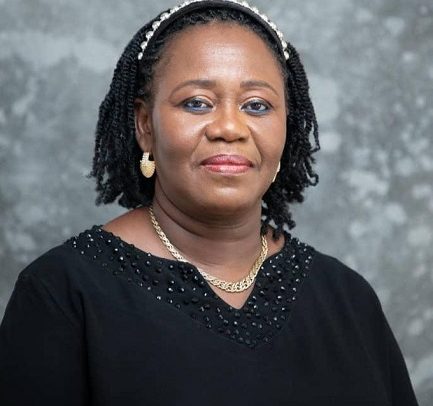Justice Gertrude Torkornoo
Suspended Chief Justice Gertrude Torkornoo has accused President John Mahama of acting arbitrarily in his decision to suspend her as a result of three petitions calling for her removal on grounds of stated ‘misbehaviour’ and ‘incompetence.’
According to her, the decision to suspend her in the absence of a reasoned prima facie determination constitutes a flagrant violation of the 1992 Constitution and the principle of fairness.
She avers that the process governing the potential removal of the Chief Justice must be conducted with utmost circumspection and fidelity to constitutional safeguards, including rigorous adherence to substantive due process and administrative justice.
Justice Torkornoo, in a statement of case to a suit challenging her suspension as Chief Justice and the setting up of a five-member committee to probe the three petitions, avers that “given that the prima facie determination under Article 146 is a quasi-judicial function, it is incumbent on the President to provide cogent, reasoned justifications for such determination in respect of each petition considered.”
Suspension
President John Mahama on April 22, 2025, suspended Chief Justice Gertrude Torkornoo following the setting up of a five-member committee to probe the three petitions calling for her removal from office.
The suspension followed the finding of prima facie by the Council of State following the forwarding of the three petitions by the President.
The committee is chaired by Justice Gabriel Scott Pwamang, a Justice of the Supreme Court and also includes Justice Samuel Kwame Adibu-Asiedu, a Justice of the Supreme Court, Daniel Yaw Domelevo, Major Flora Bazaanura Dalugo and Prof. James Sefah Dzisah.
Justice Torkornoo later filed a suit at the Supreme Court challenging the processes leading to her suspension and attached a motion for interlocutory affidavit which was dismissed by the court. Two others filed by a private individual and a group have also been dismissed.
Statement Of Case
Justice Torkornoo, in a statement of case filed through her counsel, Godfred Yeboah Dame, avers that President Mahama’s failure to conduct a proper prima facie determination to a quasi-judicial or judicial process before suspending her clearly violated constitutional provisions, including fairness and the exercise of discretion.
It further argues that the Chief Justice has a right to challenge the validity of the President’s prima facie determination, particularly where the determination is the foundation upon which further consequential actions such as suspension and establishment of the committee are based.
“It is respectfully submitted that a prima facie determination devoid of any reasoning is no determination at all. The terse statement from the Presidency announcing that a prima facie case had been established does not amount to a constitutionally compliant decision. It neither enables the Chief Justice to understand the basis for the determination nor allows her to assess whether the threshold for setting up a committee under Article 146(6) has been properly met,” Justice Torkornoo argues.
Committee
She is also challenging the constitutionality of the committee and the decision by the President to appoint Justice Pwamang as the Chairman and Justice Asiedu as a member, when Justice Pwamang had dealt personally with issues raised by two of the petitioners and Justice Asiedu on the hand was part of a panel that part-heard an application challenging the petitions.
“The argument is not that no Justices of the Supreme Court may serve on such a Committee, but rather that only those Justices who are not in any way directly or indirectly connected to the subject petitions or related proceedings may lawfully do so. The sanctity of impartial adjudication and the institutional integrity of the Judiciary requires no less,” she argues.
Justice Torkornoo further argues that the failure of Daniel Yaw Domelevo, Major Flora Bazaanura Dalugo and Prof. James Sefah Dzisah to take and subscribe to the Judicial Oath prior to participating in the proceedings of the committee is a fatal breach of a constitutional and statutory requirement, rendering their participation unconstitutional and the committee improperly constituted.
Public Hearing
Justice Torkornoo also argues that she retains the right to waive the in-camera proceedings and request that the inquiry be held in public, given the fact that the petitions and her response have been leaked and widely discussed contrary to the protective cloak demanded by the constitution.
“In light of this, it is respectfully submitted that the Chief Justice—being the one whose rights, reputation and office are directly at stake—must be deemed to have the constitutional right to waive the in-camera requirement,” she added.
BY Gibril Abdul Razak


